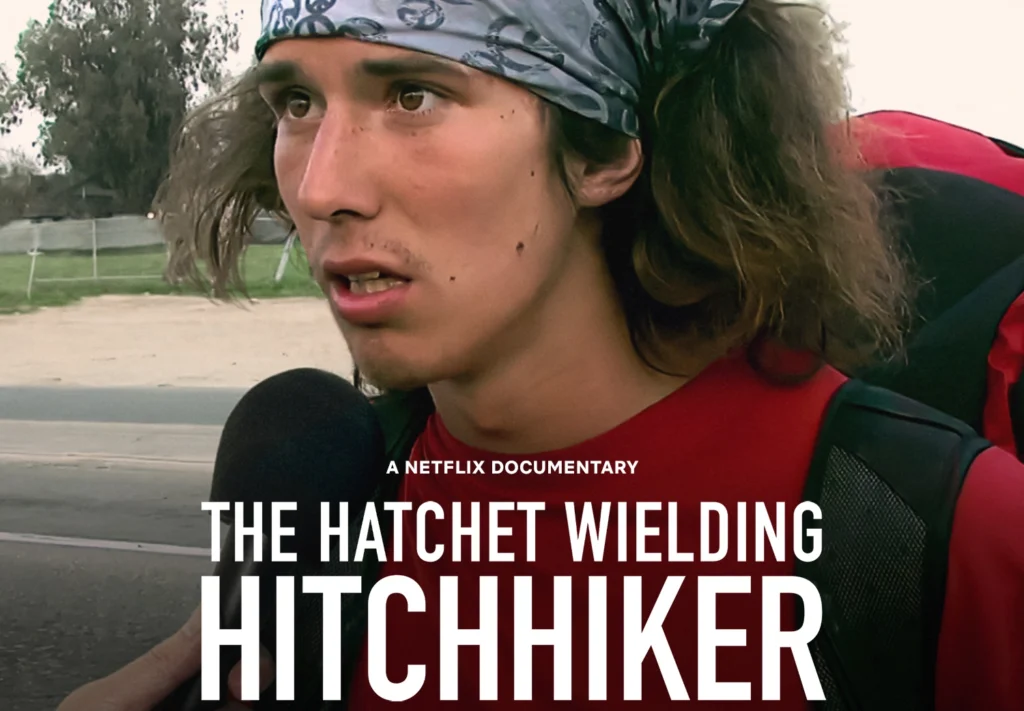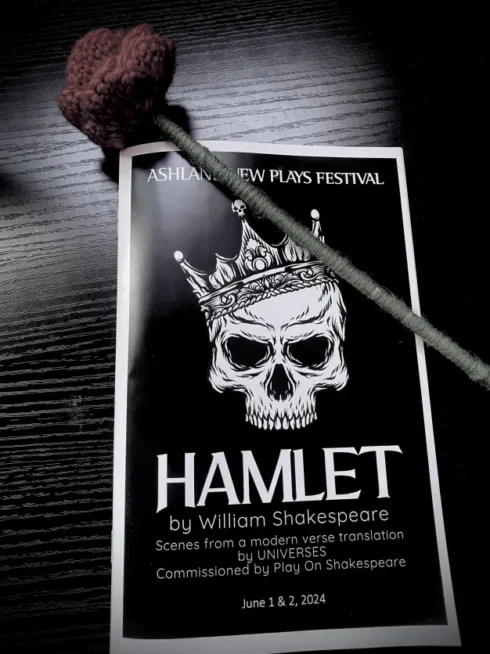Does our desire to see an unlikely hero outweigh our ability to see someone’s true colors? Netflix’s The Hatchet Wielding Hitchhiker revisits the story of Caleb Lawrence McGillvary, better known as Kai, through the eyes of people who knew him as he became famous. The film attempts to challenge popular narratives, including the notion that one heroic deed can prove moral integrity. Instead, the film serves as an overcorrection of a disheartening series of events.
In 2013, McGilvery gave an interview to a local news station about a violent encounter he had with a man who gave him a ride as he was hitchhiking. A transient, McGilvery received a ride from Jett Simmons McBride. During this ride, McBride became violent and crashed his car into a pedestrian, pinning her against a parked car. McGilvery, along with another bystander, attempted to help the woman. McBride then attacked the other bystander and McGilvery rushed to her defense. McGilvery attacked McBride with the blunt side of his hatchet and described his action to the station: “Smash, smash, smash!”
Jacob Reisbeck, who conducted the interview, could tell he had something big. Reisbeck was the first person in entertainment who latched onto Kai. He uploaded the video to Youtube, where it quickly became a viral sensation. Kai was deemed an unlikely hero in the situation, and the public wanted to see more. The entertainment industry was clamoring to get ahold of him, but due to his nomadic lifestyle, they did not know where to find him. Reisbeck was the only person in the industry with his email, and he used this power to act as a liaison between Kai and others in the industry. Despite this strategic move, Reisbeck comes across as one of the most authentic media personalities in the movie.
The film’s choice of interview subjects is where it starts to falter. They bring in Brad Mulcahy, a human interest researcher for Jimmy Kimmel Live!, one of a few people who immediately began trying to get Kai on television. Mulachy’s intentions towards Kai are made clear. “Three months ago,” he recounts, “I was searching for this guy so that we could put him on television and all enjoy him. Now he’s wanted for murder.” The film also brings in Lisa Samsky, a reality TV brand manager known for working with the Kardashians. Samsky claims that she felt responsible for Kai. However, the film does not acknowledge the extent to which Mulachy and Samsky would have financially benefited from making Kai into a star. They are treated as trustworthy sources on Kai’s life.
In the documentary both Mulachy and Samsky described Kai’s increasingly erratic behavior surrounding the media attention he received. This behavior seemingly foreshadowed Kai’s murder conviction, which Kai claims was in self-defense. The film is not sensitive to Kai’s trauma or mental health. Kai recounts horrific abuse he experienced at the hands of his mother, and his story is corroborated by his cousin. However, Kai’s mother appears in the documentary and is given a chance to defend herself against his allegations.
The Hatchet Wielding Hitchhiker is an insensitive moral condemnation of a troubled man. The documentary loses nuance in its attempt to redefine the popular narrative. The filmmakers could have let Kai’s conviction be an indicator of his character, but, like the media personalities that feature in the movie, they needed a story.



